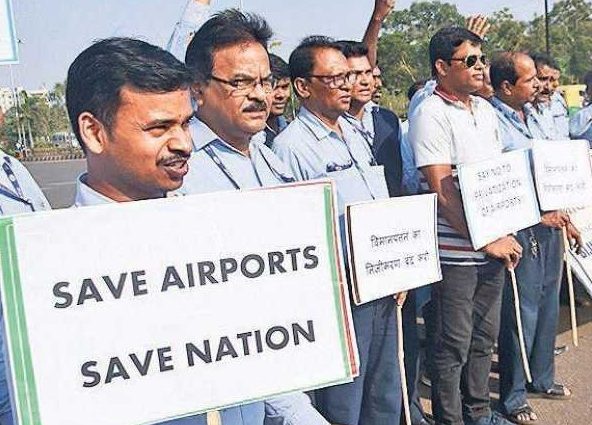TLI Staff
New Delhi: The government has maintained that a robust regulatory mechanism would guarantee flying cost does not increase after privatization of airports but the past experience says otherwise.
Aviation sector experts contend that there would be massive increase in non-aeronautical charges at privatised airports and as a result passengers would pay through their nose for buying a cup of coffee or a plate of pasta at these airports.
While the exorbitant price of food or beverage may not be part of the ticket price, they are certainly going to be the added cost of flying.
As non-aeronautical charges would continue to be out of airport regulator’s ambit, the cost of not only food and beverages but commission for foreign exchange, car-parking and a host of other services would weigh heavy on passengers’ pockets.
The airport regulator Airports Economic Regulatory Authority of India (AERA) would only fix the aeronautical charges such as landing, parking and cargo handling charges.
A senior aviation industry executive said that there is strict control over the cost with airports being managed by state-run Airports Authority of India but when they go to a private company the priorities become maximizing profits for the shareholders.
“Privatization will increase cost environment further. There would be major spike in non-aeronautical charges. For airlines, there would be significant jump in rentals, MRO, hanger, royalty etc. These increased charges will be passed on to the end-users,” he said.
As government has decided to privatize all profitable airports of the AAI, the flying cost from such airports is set to soar thus dashing the hopes of common men for air travel.
“India is becoming very insensitive towards travellers. In light of revenue pressure, the (private) airports keep squeezing as much as they can. But when it comes to giving back the service for the charges paid by the passengers, the airports remain wanting,” said Mark Martin, founder and CEO of aviation advisory Martin Consulting.
A senior AAI official said that government has indicated that state-run airport operator’s role would be eventually limited to Regional Connectivity Scheme (RCS) airports in the smaller towns. He, however, said that shrinking role of AAI does not necessarily mean retrenchment as travel demand from RCS airports would increase in coming years.
“So, we see staff who do not opt for working at the privatised airports getting transferred to these RCS airports,” he said.
In the fresh round of leasing airports to private companies on public private partnership (PPP), AAI would bid out another set of six airports that include Varanasi, Amritsar, Bhubaneswar, Trichy, Indore and Raipur.

